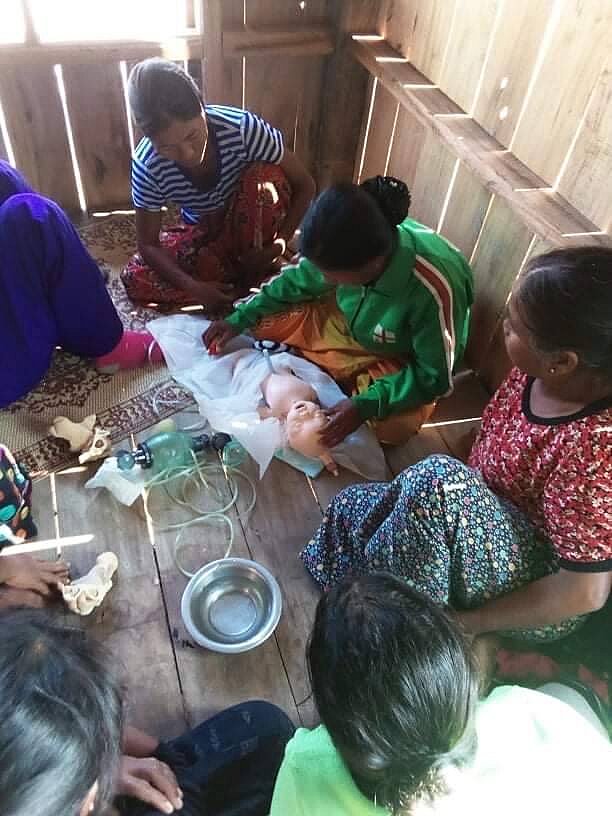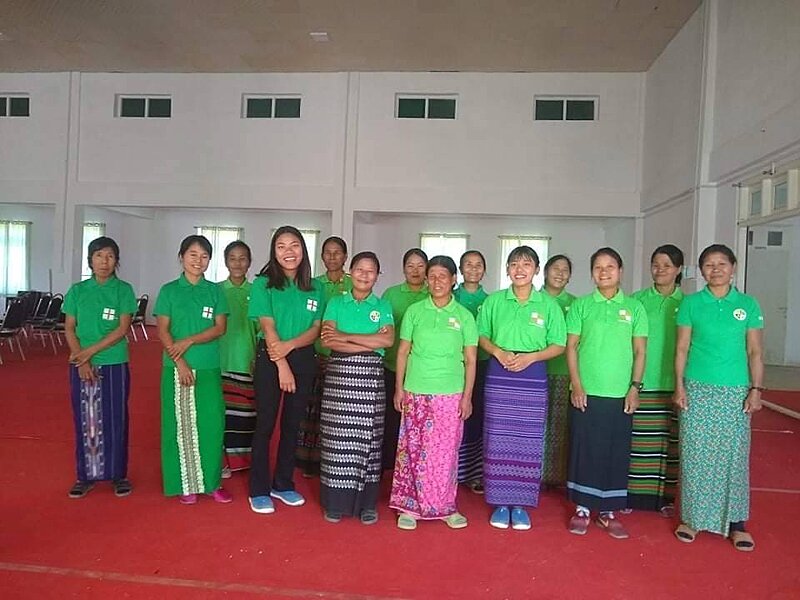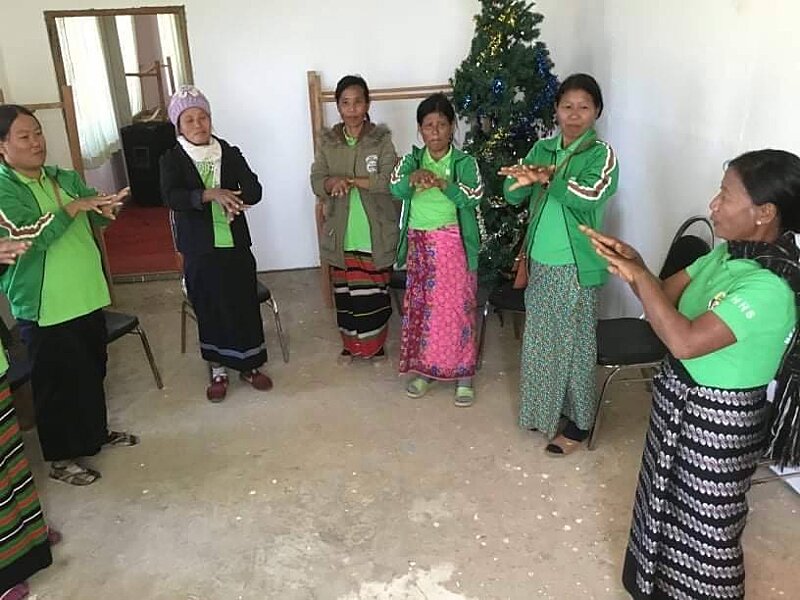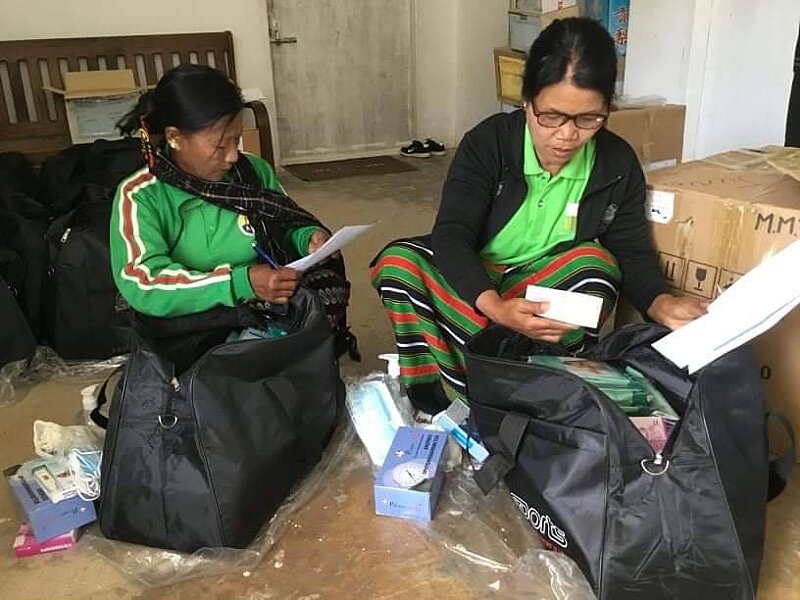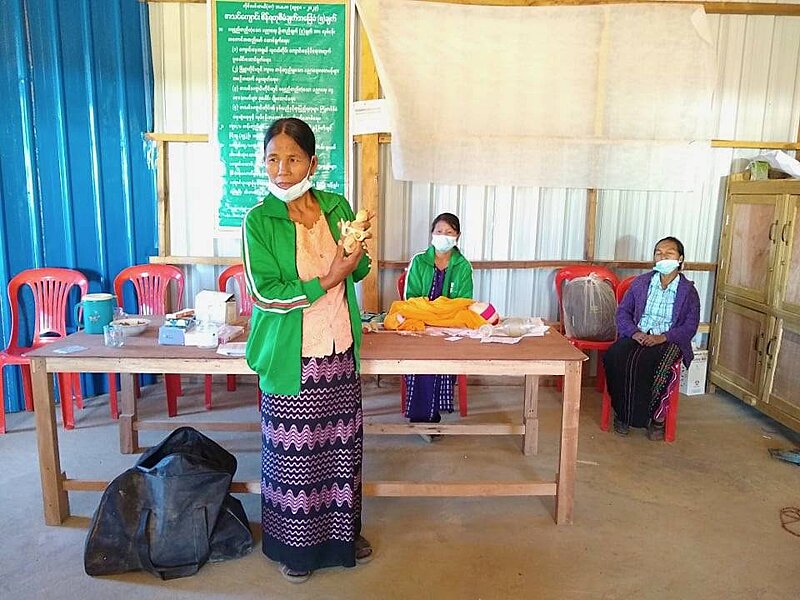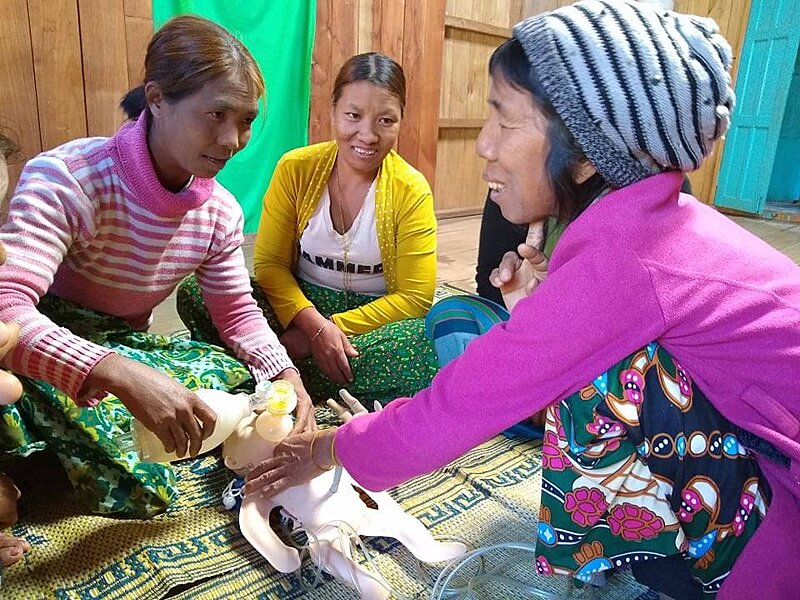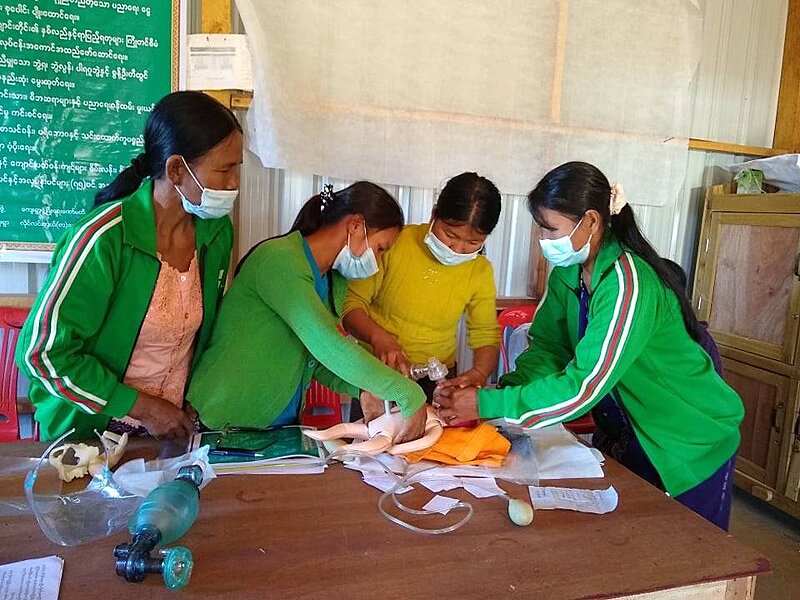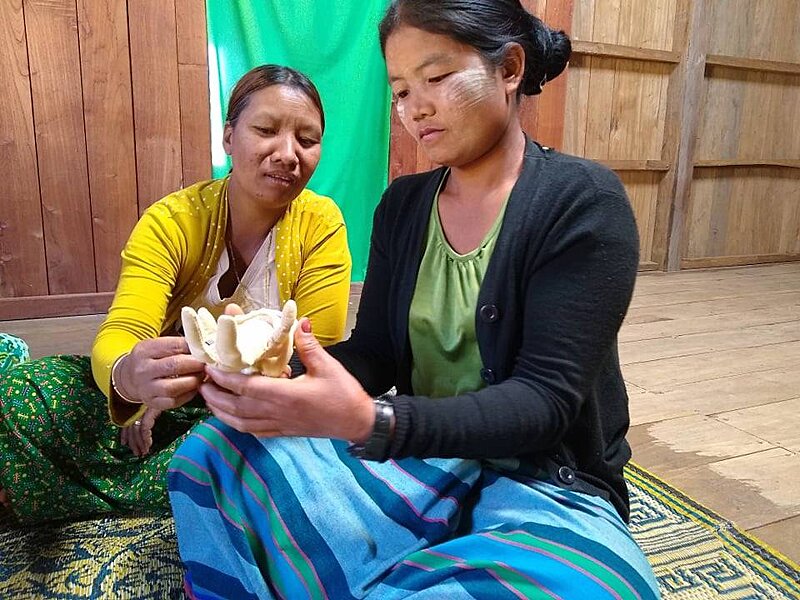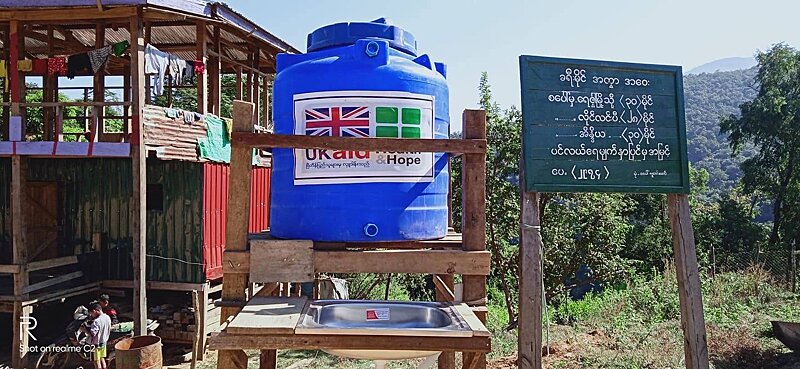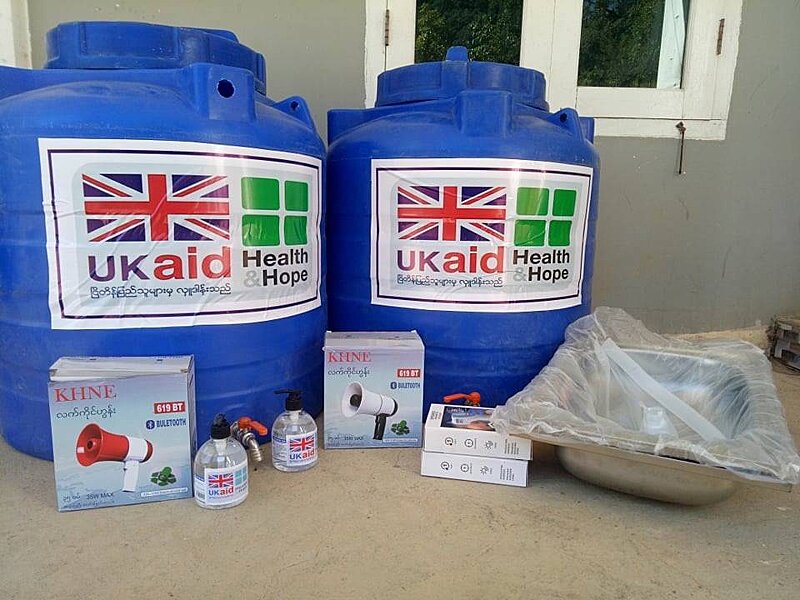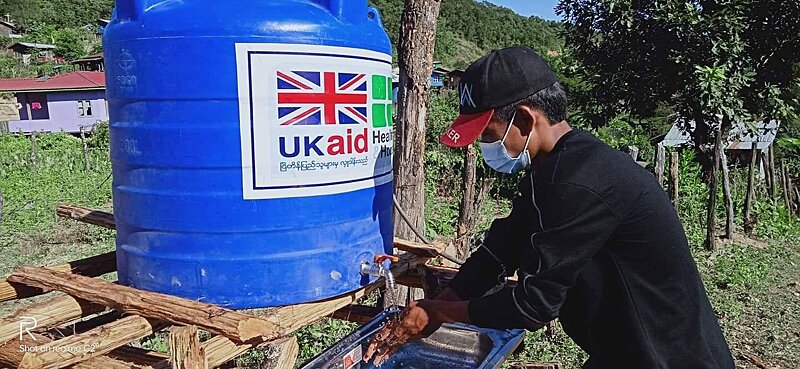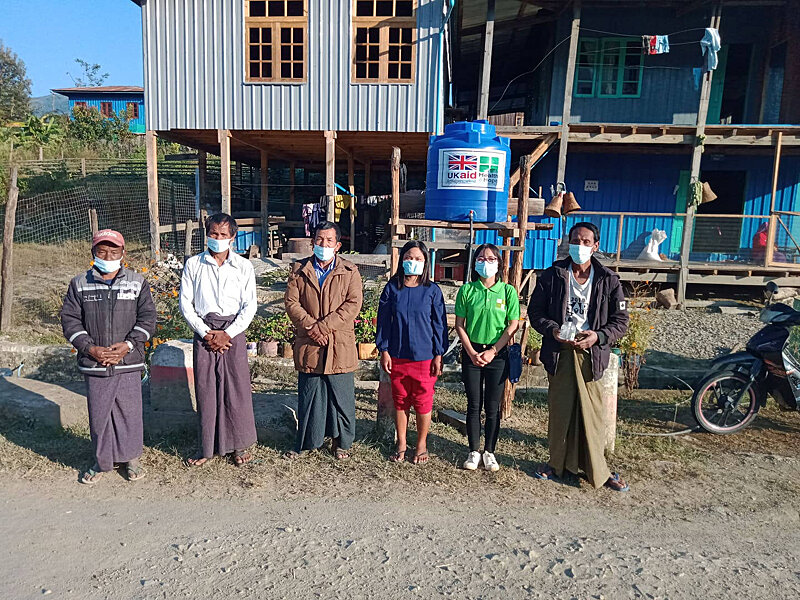Latest news
Update following political changes in Myanmar
Posted on 2nd February 2021 by Philippa Wilford
Health & Hope remains concerned about recent political developments in Myanmar.
Our in-country staff are currently safe and well, and will continue to deliver essential services to rural communities as planned after a short break to review security considerations. The safety of our staff is paramount to us, and as such we will continue to review the conditions to ensure we can work safely, whilst remaining responsive to the needs on the ground.
As a non-political organisation, we stand alongside the people of Myanmar in the hope that a peaceful resolution to the current situation will be found.
Having worked through periods of political uncertainty in the past, we remain resolute in our mission, and will continue to provide non-discriminatory humanitarian aid and development services to those in need.
Some have asked how you can support communities in light of recent events. We are continuing to assess the situation on the ground to identify any short-term needs as they develop. Giving a gift to our general fund will enable us to respond swiftly to these needs as they arise.
Especially at this time, we are so grateful for your continued support and partnership.
Local women expanding TBA training to new villages
Posted on 25th January 2021 by Philippa Wilford
In December, 12 local women who had completed our Trainer of Trainers (ToTs) course delivered maternal and neonatal training into 12 remote villages in western Myanmar.
The ToTs were paired up based on their ability to speak the local language, and to encourage a good skill mix. Each ToT pair went to two villages to support training of local Traditional Birth Attendants (TBAs) as well as assist in educating the local community in key health topics. The ToTs also supported pregnant women and in some cases were in the right place at the right time to assist in deliveries alongside the TBA. Twenty four TBAs and an additional 72 local women received training and support on a range of topics from health in pregnancy and complications in birth, to breastfeeding and post-natal care.
One of the ToTs recounted her arrival in the village:
“The village welcomed us so warmly. We stayed for two days running a training workshop with both theory and practical sessions. The workshop went very well and the training was gratefully received. We taught about the importance of kangaroo care after delivery which is when the baby is put skin to skin with the mother immediately after birth. We taught the TBAs the importance of waiting for the placenta to come out naturally and warned of the dangers of puling or pushing the placenta out which is common practice in the villages. We also explained the importance of putting the baby straight to the breast and ensuring that the first milk from the mother was not thrown away. The TBAs and local women who attended the workshop were very happy to learn about this and so keen to pass on their new knowledge and apply it to their work.
One night whilst we were there, there was a delivery and the TBA wanted to immediately apply all her new knowledge. Unfortunately the umbilical cord was very short and the TBA didn’t feel it was long enough to place the newborn on the mothers chest immediately. But I dried the baby, placed the baby in a warm blanket, cut the umbilical cord and then initiated kangaroo care by placing the baby skin to skin with the mother whilst waiting to deliver the placenta. The mother and her family were so delighted, thankful for our help and grateful for our encouragement and support for the TBA.”
This testimony reflects the incredible need for the ToTs to be physical present in the village to support the TBAs as they apply the skills and knowledge given to them during teaching workshops. Follow up visits and ongoing support are just as vital, not only for continued professional development, but also to ensure the TBAs are supported in a wide range of situations.
The example given in this testimony shows how even with classroom knowledge, every pregnancy is unique and every birth experience is different. Despite the challenges that may present, in many cases it is still possible to meet an excellent standard of practice. Initiating skin to skin (kangaroo care) and putting the baby to the breast for the first milk can still be achieved despite unexpected challenges if the TBA has a good understanding and is able to adapt their skills and problem solve by looking for alternative solutions.
Shortly after the outreach visit, the ToTs traveled to Lailenpi for a 3-day workshop with the Health & Hope medical team.
The workshop provided the ToTs with the opportunity to share birth stories, discuss the training delivered, reflect on best practices for working in a community setting and identify ways in which they can improve the service they offer. At the workshop, the ToTs also stocked up on essential supplies, such as clean delivery kits, gloves, soap, monitoring equipment, vitamins and pregnancy supplements.
Thank you
Your support for this project is so important as it continues to equip local women with the skills to respond to the challenges of child birth within remote rural communities in the jungles of Myanmar. The knowledge and practice change as a result of this work has a radical impact on both the wider family as well as the new-born child, impacting health outcomes and saving lives.
Click here to find out more about the Maternal & Neonatal Health project and how you can support this work.
COVID-19 Response update (Dec 2020)
Posted on 10th December 2020 by Philippa Wilford
After the first cases of COVID-19 were reported in Myanmar in March 2020, our team responded by providing resources and equipment, as well as educating local communities on preventative measures to reduce the spread of the virus. You can read more about this first response here.
In September, as a second wave hit Myanmar and cases began to rise, we received funding from the Foreign, Commonwealth & Development office which enabled us to conduct further outreach visits to remote communities. As part of this response project, the team in Myanmar have visited 110 towns and villages, many of which are in areas of conflict in southern Chin State.
During these outreach visits, the team set up handwashing stations, distributed PPE supplies and ran mobile clinics. Many areas that were visited had limited access to healthcare services.
Lockdown restrictions have been in place to varying degrees in Myanmar since March 2020. Unfortunately these ongoing restrictions have impacted people as much as the virus itself.
In August, schools shut again only a few weeks after opening for the new academic year, and it is now looking likely that students will miss a whole year of teaching. This will further exacerbate the existing challenges that students face in gaining an education. We have also seen the impact of these lockdowns on people's ability to earn an income, as well as increases in the price of food and other commodities — making those in poor, rural communities even more vulnerable.
As we head into a new year, we are ever more aware of the increasing need for our services to support the desperately poor communities in this part of the world.
As always, your continued support and prayers are very much appreciated and the generosity of our supporters who gave through our recent matched giving campaign could not have come at a better time. Thank you!

